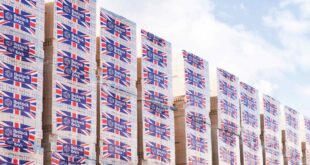Tarmac’s Bill Price sets the record straight on the myth of using ‘squeezy bottle’ washing up liquid in the production of mortar for laying bricks.
Let’s debunk a common DIY myth. The use of ‘squeezy bottle’ washing up liquid in the production of mortar for laying bricks.
Most builders merchants sell mortar plasticisers supplied by reputable producers and which are designed to do what they say on the container
The term plasticiser, when applied to bricklaying mortar, is given to an admixture that is added to the mixer, in small quantities, in order to improve the properties of the mortar. It does this by entraining small bubbles of air in the fresh mortar or by chemically reducing the amount of water required to make a workable mortar, or a combination of both.
The aim is to make a cohesive mortar that does not bleed and holds together well on the trowel, without compromising the development of strength. Deliberately entrained small bubbles of air act as mini ball-bearings and lubricate the mortar, making it more workable with a lower amount of mixing water (a good thing) and also imparting some added resistance to frost attack (also a good thing), so what is the issue?
The potential problem is that there is a long standing view among some builders that supermarket washing up liquid will deliver the same effect as a proprietary plasticiser purchased from a Builders Merchant. This is a dangerous myth!
Washing up liquid is designed to clean dishes not to improve mortar and whilst it does produce foam when mixed with water, it tends to entrain variable amounts of air containing large air bubbles as well as the small ones that we actually need. This can lead to the creation of large air voids in the mortar, which greatly reduces strength and does not even improve the frost resistance.
Using washing up liquid as a substitute for a specially manufactured mortar plasticizer is simply bad practice. The NHBC good Craftsman Guide for brickwork and blockwork states that washing up liquid should never be used in mortar and I couldn’t agree more. The cost of a proper plasticizer is minimal compared to having to take down a substandard wall and rebuild it!
 Builders Merchants Journal – BMJ Publishing to Builders Merchants and the UK merchanting industry for more than 95 years
Builders Merchants Journal – BMJ Publishing to Builders Merchants and the UK merchanting industry for more than 95 years



